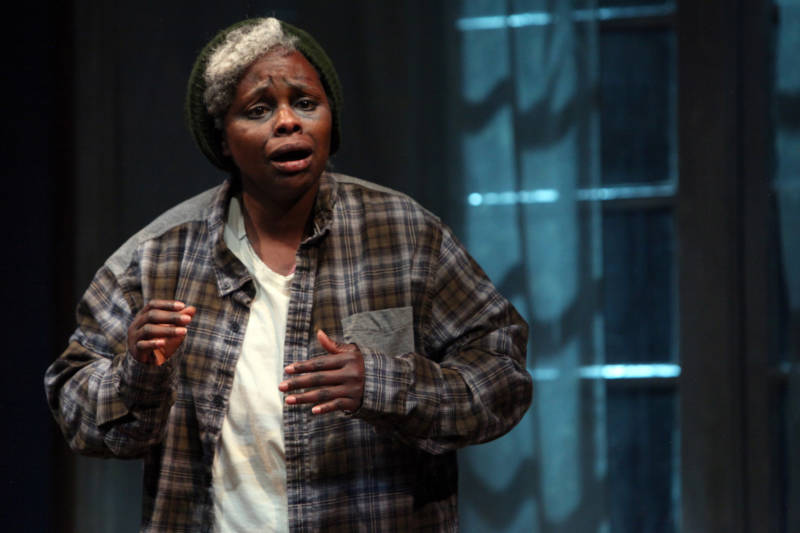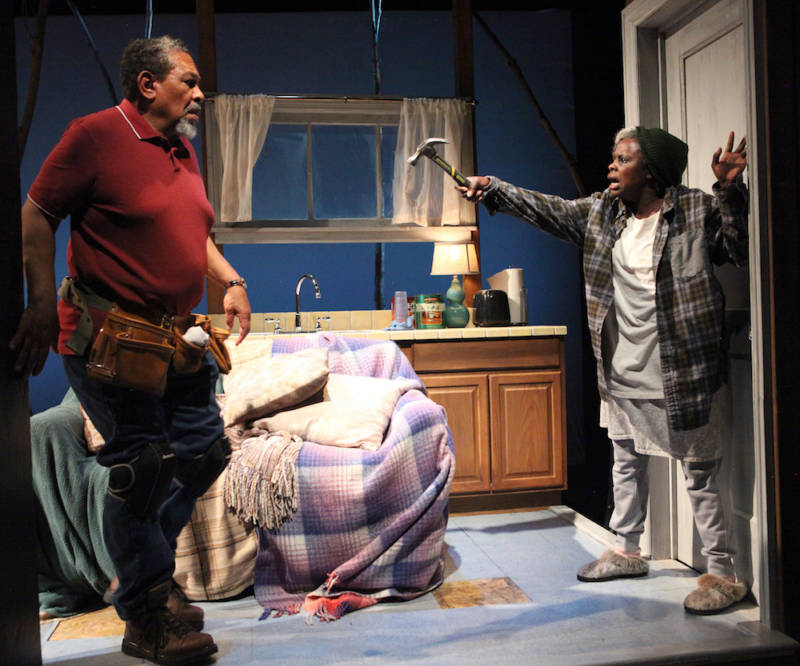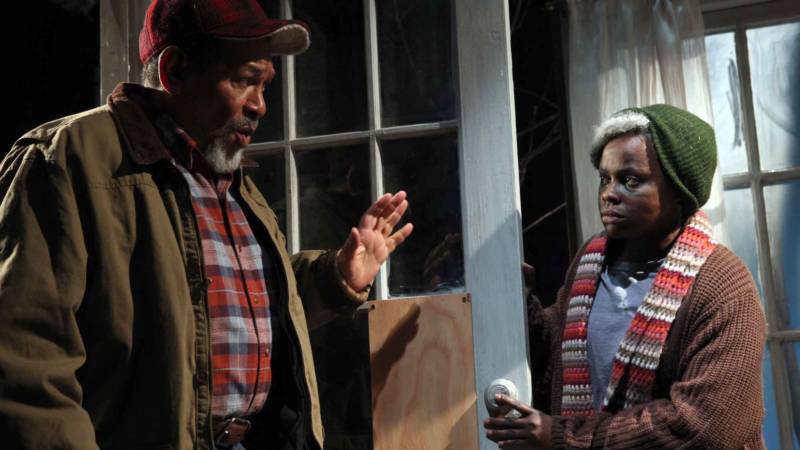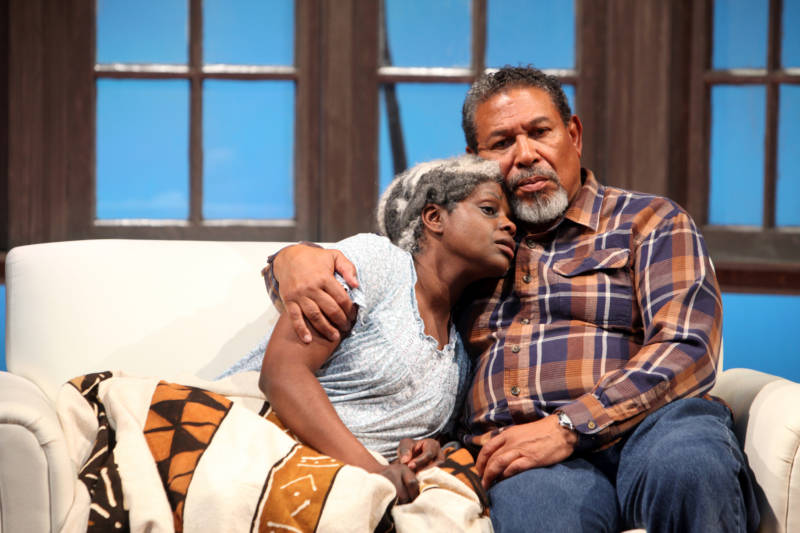When Magic Theatre was founded in 1967, it immediately became a champion of new works and emerging American playwrights. One doesn’t have to look further than this season to see that this mission continues, from May’s revival of Luis Alfaro’s Oedipus El Rey to this month’s world premiere of Mfoniso Udofia’s In Old Age.
Audiences who caught the fourth installment of Udofia’s nine-play Ufot cycle at A.C.T. last month (Her Portmanteau) will especially welcome the opportunity to continue the cycle with Magic Theatre’s production. Meanwhile, those still hoping to connect with this ambitious project will find In Old Age an intriguing point of entry.
Udofia’s association with Magic Theatre began in 2014, as part of their Virgin Play series, and has continued to develop works there—including the West Coast premieres of her play Sojourners, and the world premiere of runboyrun. There’s a resonance between Udofia’s ongoing artistic collaboration with Magic Theatre and that of Sam Shepard’s, who developed his own “family” cycle of plays there decades earlier. Just as Shepard became emblematic of a certain urgent “American” voice, so does Udofia embody a certain playwriting sensibility of today’s American theater—embracing a plurality of identities, a willingness to allow the interior lives of her characters to reveal themselves in unexpected ways, and a penchant for small details as stand-ins for big events.

Under the direction of Victor Malana Maog (who also directed Her Portmanteau), silences give gravity to mundane exchanges, a shift in posture speaks volumes, a heavy sigh hangs in the air like a white flag. A two-hander set in the winter of family matriarch Abasiama Ufot’s life (played by Nancy Moricette), the action is mostly contained in a single room of her run-down Massachusetts house, which has been in a state of slow decay for decades. Enter handyman Azell Abernathy (Steven Anthony Jones) who has been hired sight unseen by Abasiama’s children to fix up the place for her, a claim she views with silent suspicion and territorial hostility.
While there are moments of humor, the play reaches far beyond the hokey odd-couple setup, and plunges into the hearts and consciences of its protagonists. Ratcheting up the tension, elements of a haunting invade their wary peace, insinuating itself as a third character whose presence serves as both a warning and a clarion call to action. Manifested primarily through Sara Huddleston’s immersive soundscape, and eerie flashes from York Kennedy’s light design, the insistent ghost of Abasiama’s past battles for control of her present. It’s a state of being all too familiar to Azell, whose own past demons are kept in mostly in check through great struggle and repetition of a time-worn mantra “I am an ever-expanding center of peace.”

As Azell Abernathy, Steven Anthony Jones completely embodies a working man past the age of retirement but not yet retired, in a state of physical health he can (and does) boast of, and an appealing outward personae. His full commitment to character brings unexpected nuance to every motion, from the grudging, almost sarcastic way he moves a television set, to his exasperated early morning grimace, to the depths of gentleness he conveys during a moment when he washes Abasiama’s feet after a night of her exorcising her ghost.




